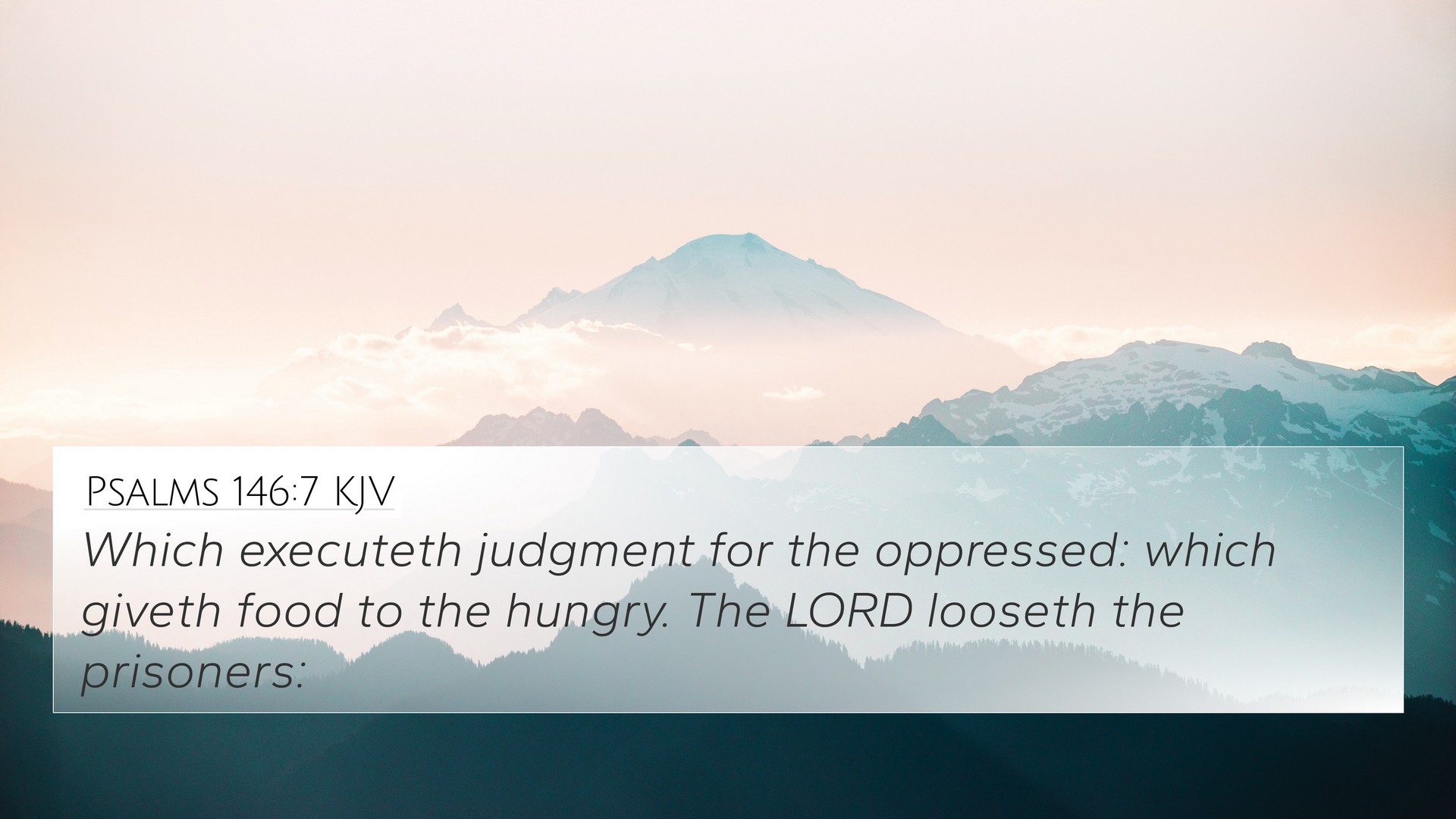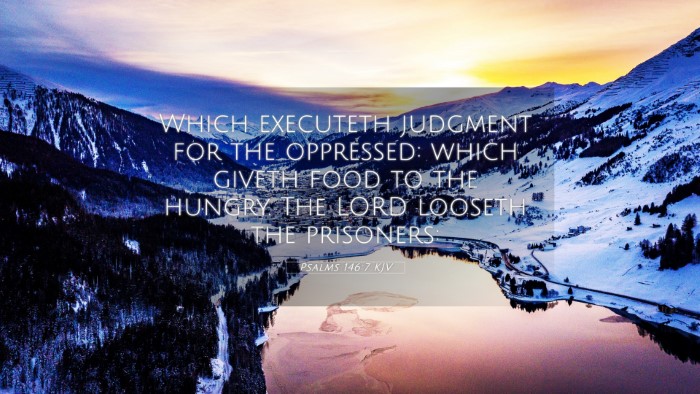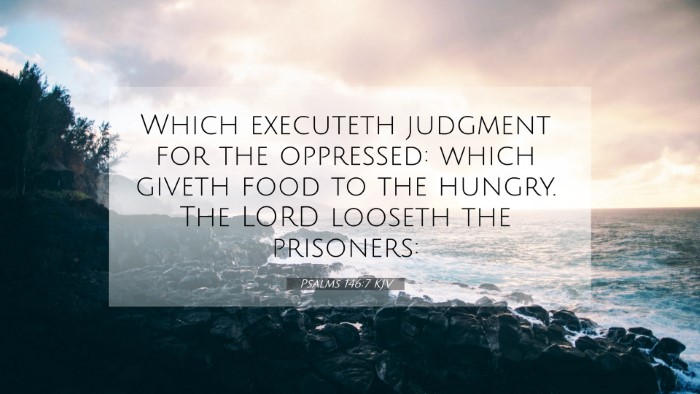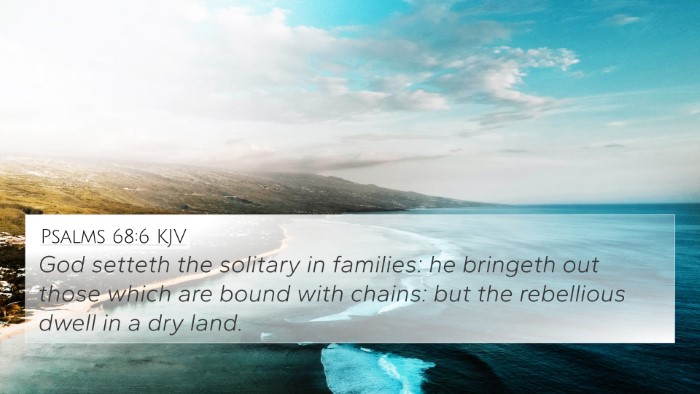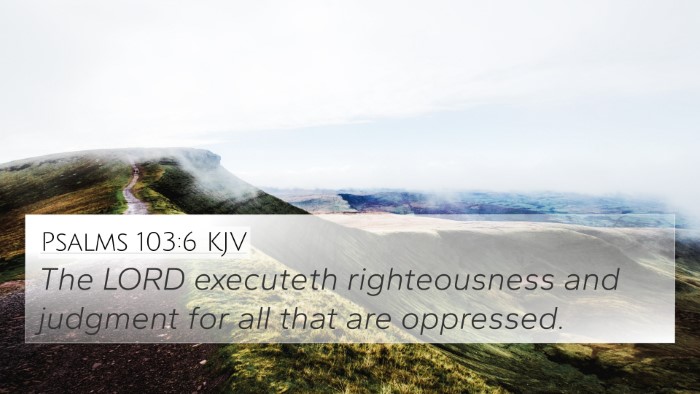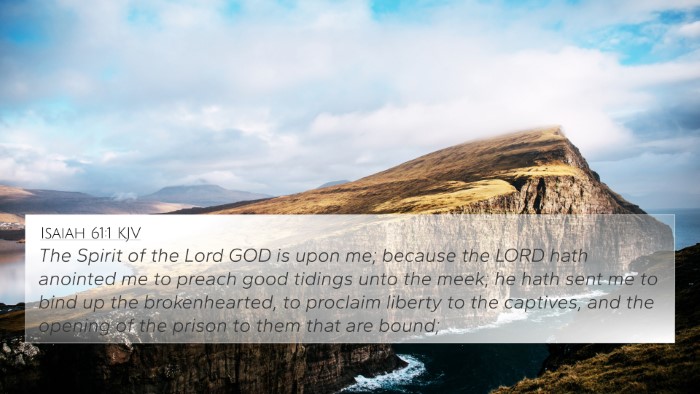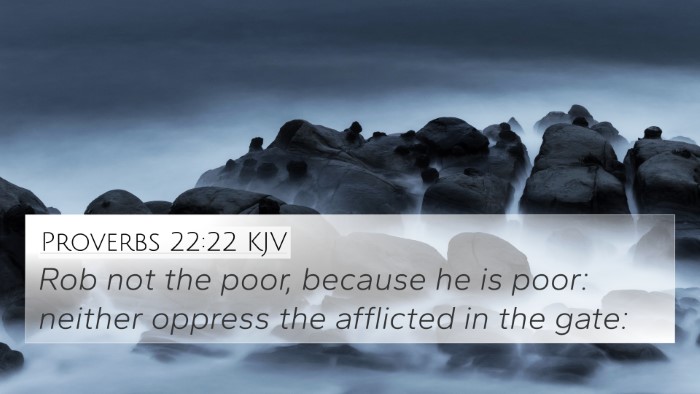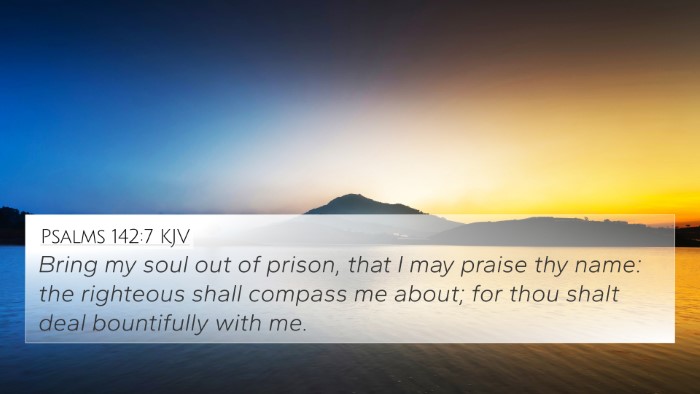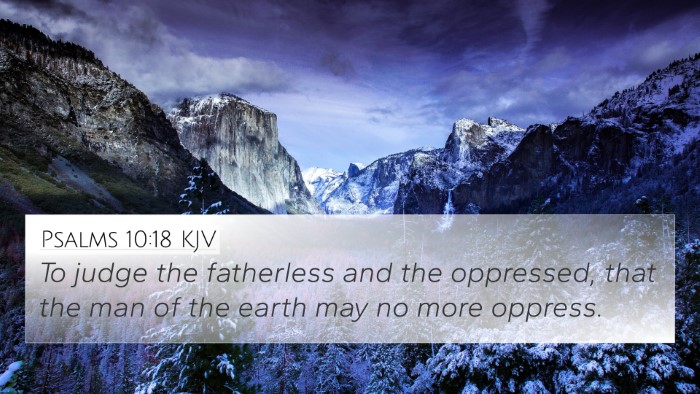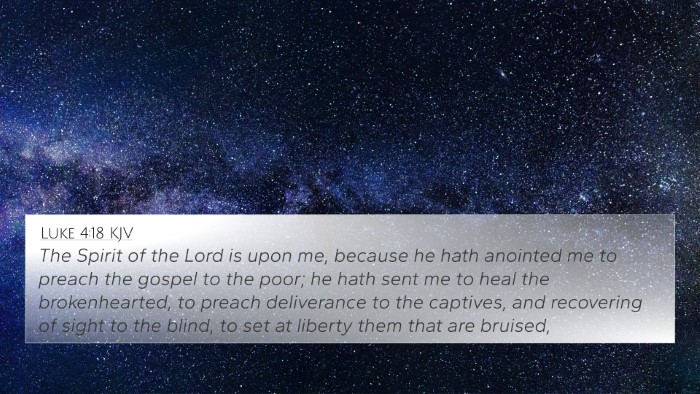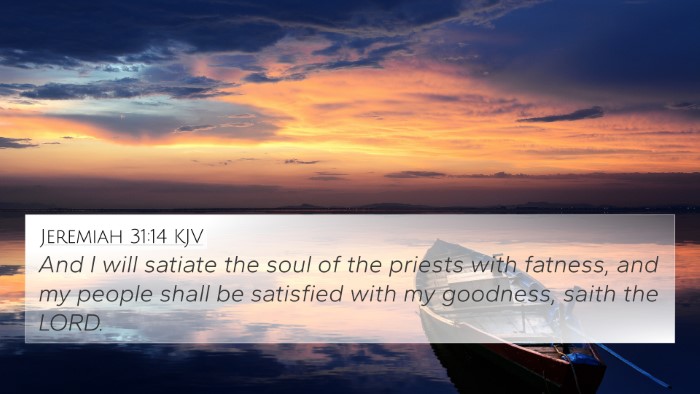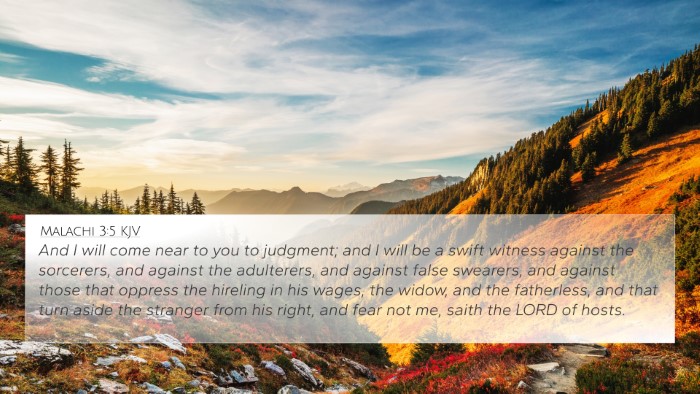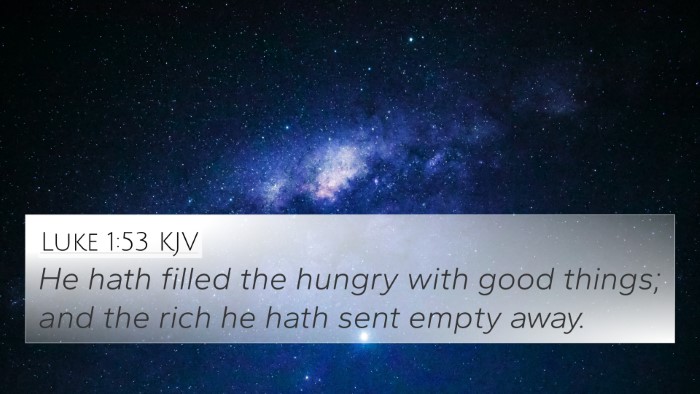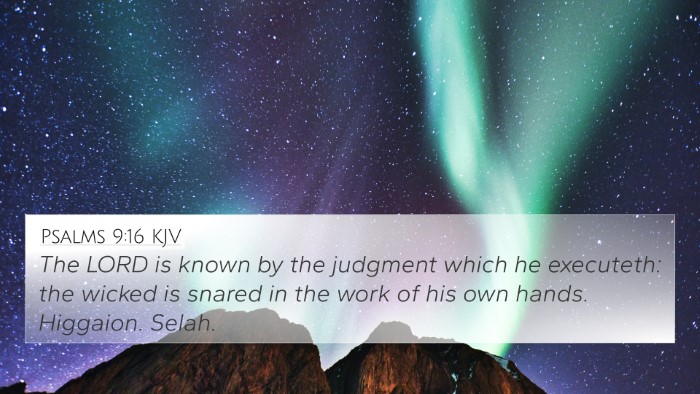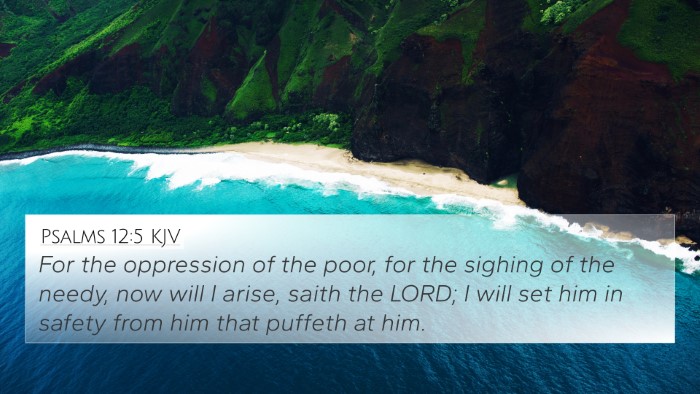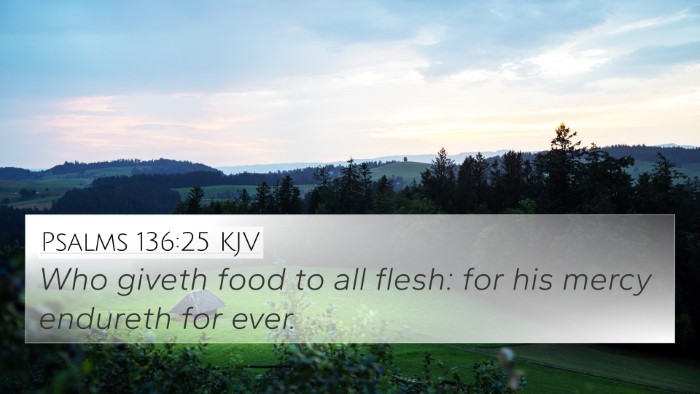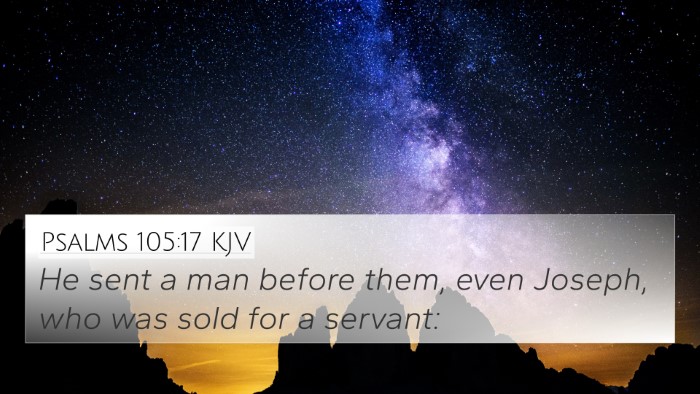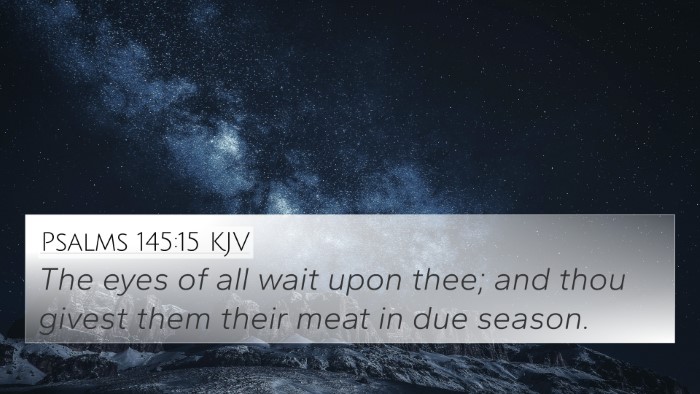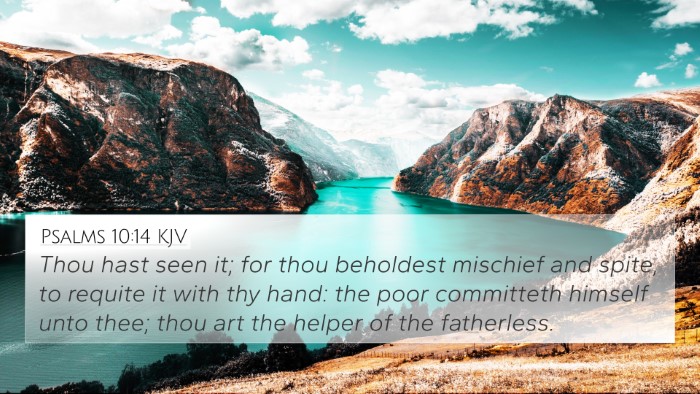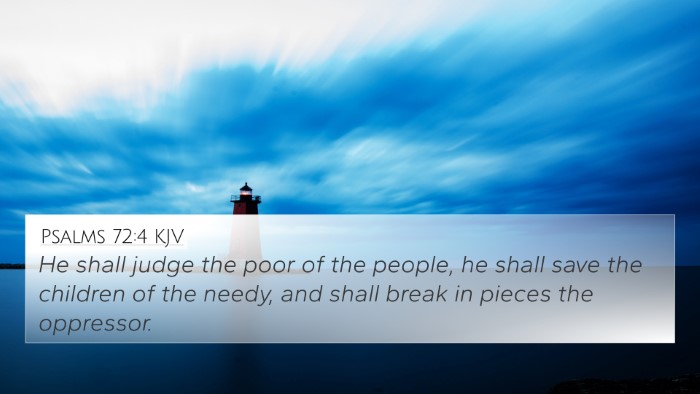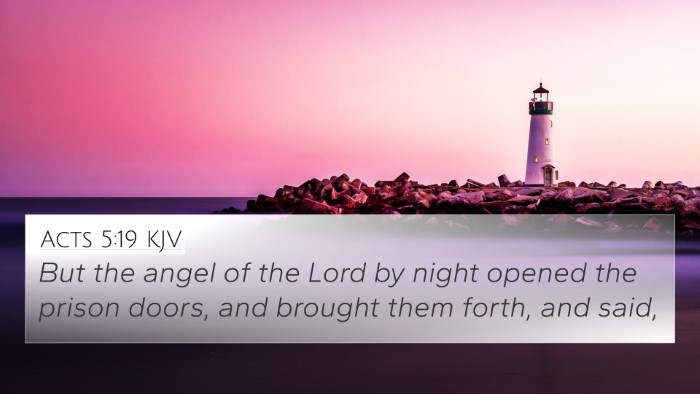Psalms 146:7 - Meaning and Interpretation
Psalms 146:7 declares: "Which executes judgment for the oppressed: which giveth food to the hungry. The Lord looseth the prisoners:" This verse emphasizes God's active role in delivering justice and provision to those in need. Through analysis of public domain commentaries from Matthew Henry, Albert Barnes, and Adam Clarke, we gain insights into its deeper meanings.
Verse Context and Overview
This verse is situated within a psalm that extols the virtues of God as a protector and provider. It serves as a proclamation of God's unwavering commitment to those who suffer injustice and hunger.
Key Themes in Psalms 146:7
- Justice for the Oppressed: It emphasizes God's role as a judge who executes justice, reflecting His concern for social equity.
- Provision for the Hungry: The line about providing food illustrates God's generosity and sustenance for those in need.
- Freedom for the Prisoners: The verse hints at deliverance and liberation, underscoring God's power to free those who are bound.
Commentary Insights
Matthew Henry's Commentary
Matthew Henry reflects on God's mercy and justice, suggesting that the Lord not only hears the cries of the oppressed but actively intervenes. He emphasizes that the oppressed are given hope through God's righteous acts, and the hungry are fed not just physically, but spiritually. Henry connects this to the broader theme of God’s faithfulness in providing for humanity's needs.
Albert Barnes' Commentary
Albert Barnes expounds on the practical implications of divine justice, noting that God's intervention is vital for the welfare of society. He draws attention to how this verse serves as a reminder for believers to reflect God's justice in their dealings with others. Barnes highlights the expectation that those who trust in the Lord should support the oppressed and feed the hungry, thus participating in God’s divine plan.
Adam Clarke's Commentary
Adam Clarke interprets the notion of 'loosing the prisoners' as a spiritual liberation, indicating that God not only sets captives free from physical imprisonment but also from sin and spiritual bondage. He notes that this verse showcases the multifaceted ways in which God's love and justice intersect to bring holistic restoration and deliverance.
Cross References Related to Psalms 146:7
- Isaiah 61:1: “The Spirit of the Lord is upon me; because the Lord hath anointed me to preach good tidings unto the meek; he hath sent me to bind up the brokenhearted, to proclaim liberty to the captives, and the opening of the prison to them that are bound.”
- Psalm 72:4: “He shall judge the poor of the people, he shall save the children of the needy, and shall break in pieces the oppressor.”
- Matthew 25:35-40: “For I was hungry, and ye gave me meat: I was thirsty, and ye gave me drink: I was a stranger, and ye took me in...”
- Luke 4:18: “The Spirit of the Lord is upon me, because he hath anointed me to preach the gospel to the poor; he hath sent me to heal the brokenhearted, to preach deliverance to the captives, and recovering of sight to the blind, to set at liberty them that are bruised.”
- Matthew 11:28: “Come to me, all ye that labour and are heavy laden, and I will give you rest.”
- Acts 10:38: “How God anointed Jesus of Nazareth with the Holy Ghost and with power: who went about doing good, and healing all that were oppressed of the devil; for God was with him.”
- Proverbs 22:22-23: “Rob not the poor, because he is poor: neither oppress the afflicted in the gate: For the Lord will plead their cause, and spoil the soul of those that spoiled them.”
Thematic Connections and Interpretation
Psalms 146:7 serves as a bridge connecting various themes within the Bible. The verse intertwines with the call for justice and compassion throughout both the Old and New Testaments. The themes of divine justice, care for the needy, and liberation from oppression resonate in multiple scriptures, allowing for inter-Biblical dialogue.
How This Verse Connects with Other Scriptures
This connection is enriched by recognizing that similar sentiments are echoed by various biblical figures. For instance, the compassionate ministry of Jesus mirrors the objectives highlighted in Psalms, where He engages in acts fulfilling the hunger of the needy and liberating the oppressed. Such cross-referencing allows for a more holistic understanding of God’s character as revealed in Scripture.
Conclusion
Psalms 146:7 is not merely an individual verse but a piece of a greater tapestry showcasing God’s passion for justice, mercy, and provision. By delving into public domain commentaries and cross-referencing with other biblical texts, believers can enrich their understanding of God’s love and the ways it manifests in their lives and communities.
